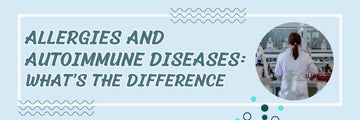Blog
Staying Aware On World Tumour Day
by
Donna Mastriani
on
Jul 06, 2023
Every day is an opportunity to learn more about yourself and your health profile and since June 8th is World Tumour Day, it becomes the perfect opportunity to understand tumours and cancer in general. One of the most common types of cancer is colon cancer. Understanding the role of
colon cancer testing will help readers make the right health-related decisions for the future. Let’s dive into education about tumours and your health.
World Tumour Day is June 8th

This important day of recognition is the perfect opportunity to learn. For example, learning about the prominence of tumours and how common it is for many to have them without even knowing. Unfortunately, this is much more common than most would like to believe.
Certain types of tumours and cancers are more common than others. This makes screening and testing essential for detection and treatment. Did you know colon cancer is the fourth most common type in the UK? Every year there are over
41,000 new diagnoses!
How to screen for colon cancer
Colon cancer is high on the list of popular cancer types. So, learning how it’s screened is becoming important to do your part in protecting your health.
A colonoscopy is the best and most standard method to detect colon cancer. But, a colonoscopy can be time-consuming, uncomfortable, and difficult to schedule. Many GPs won’t schedule one unless there is a reason to do so. That’s where at-home
colon cancer testing can offer a starting point. Abnormal test results can alert your GP to schedule a colonoscopy. This will give you both more hands-on information about what’s going on.
Who is cancer screening for?
Today of all days of the year, is the best opportunity to both ask and seek an answer to this question!
Cancer screening is for people with no symptoms of tumours or cancer at all. The need for screening and testing will vary depending on many factors. These can include your age, health, pre-existing health conditions, and family history.
Screening is for those with no noticeable symptoms because this procedure can catch a potential tumour before you do. This goes back to our discussion that early detection will be the best defense against tumours and cancer. That’s not to say that screening and testing are not valuable after you notice something wrong in your body. The best time for this important measure in health care is “now,” regardless of when “now” occurs.
A few important reminders
Like most other types of cancer, surviving a colon cancer diagnosis and treatment are linked to early detection. As medicine becomes more advanced, screening, detection, and treatment also improve. Pairing proper medicine with a proactive approach in testing can mean only good things.
As well screening and at-home
colon cancer testing are both cheaper than treating colon cancer. Preventative care is easier and more affordable than retroactive care a lot of the time. And colon cancer is no exception to this.
It also benefits your mental health, though many do not think of it that way. You will feel better knowing that you are doing everything you can to care for yourself. This detail is especially important for those who have lost loved ones to cancer. It also helps those looking to minimise interruptions from health diagnoses in the future.
How to become more aware on World Tumour Day
World Tumour Day is the perfect occasion to carefully review your healthcare priorities. You can factor in things like general health and wellness, of course, but don’t forget preventative care. This can include cancer screening and regular GP appointments. You can use these appointments to discuss crucial health details such as your medical family history and any new changes you notice. These seemingly small changes might imply you have something going on that needs a closer look.
here is never a bad time to start becoming more aware of World Tumour Day and cancer in general. Use this vital opportunity to help you step into an informed and educated future about your health. Testing can play a primary role in helping you stay in charge of your future as much as possible.
Regardless of your family history or health experience, consider taking the time to consider screening or at-home testing for someone you love. It could be the best and most important gift you ever give them! So, why not
give that same gift to yourself while you’re at it? It’s never too early to get into the habit.
 This important day of recognition is the perfect opportunity to learn. For example, learning about the prominence of tumours and how common it is for many to have them without even knowing. Unfortunately, this is much more common than most would like to believe.
Certain types of tumours and cancers are more common than others. This makes screening and testing essential for detection and treatment. Did you know colon cancer is the fourth most common type in the UK? Every year there are over 41,000 new diagnoses!
This important day of recognition is the perfect opportunity to learn. For example, learning about the prominence of tumours and how common it is for many to have them without even knowing. Unfortunately, this is much more common than most would like to believe.
Certain types of tumours and cancers are more common than others. This makes screening and testing essential for detection and treatment. Did you know colon cancer is the fourth most common type in the UK? Every year there are over 41,000 new diagnoses!














